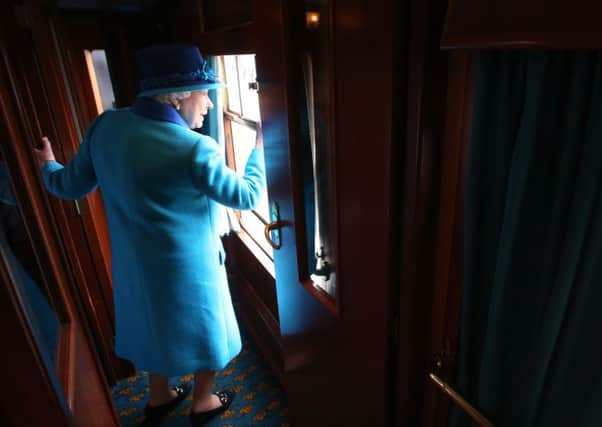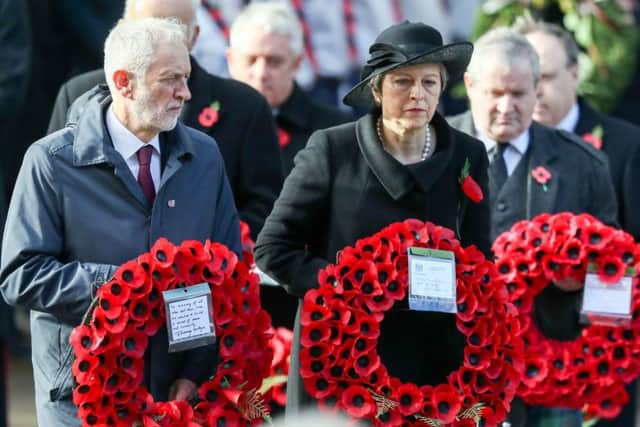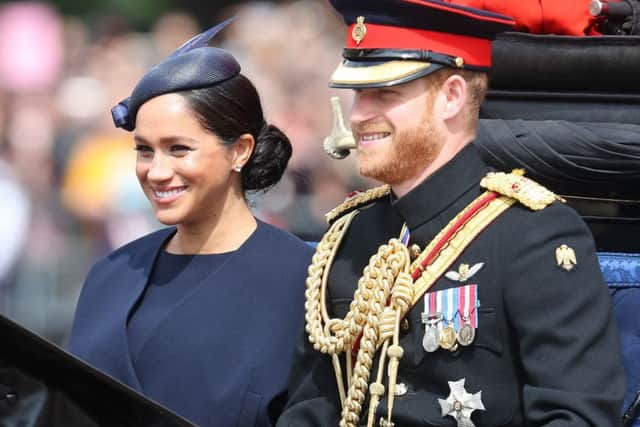Disrespect for the Queen helped cost Jeremy Corbyn and Labour the general election – Jayne Dowle


It was during that television interview with ITV1’s Julia Etchingham. Asked if he sat down with his family to watch the Queen’s message on Christmas Day, he replied – and I’m paraphrasing – that he was too busy in the morning to tune in to the 93-year-old monarch addressing the nation and Commonwealth.
And there, in one sentence, he totally blew it. Morning? Everyone knows that the Queen speaks in the afternoon, at 3pm.
Advertisement
Hide AdAdvertisement
Hide Ad

If you’re an organised household, this is perfect timing for after Christmas lunch. If you’re like us, you’ll probably still be juggling turkey legs and stuffing balls, but the 10 minutes in which she talks about her year is the perfect opportunity to perch on the sofa arm with a small glass of something and toast her health.
Crashing defeat for Corbyn was on the cards already, of course, but this level of ignorance put the tin lid on it, as we say in South Yorkshire. Even if ‘The Queen’, as my grandma used to call the annual televised address, isn’t on your own Christmas Day schedule, you’d expect the leader of Her Majesty’s Opposition to know what time she spoke. This highlights the nature of modern British patriotism. It’s there in the background, whirring away, influencing us far more than we might think.
Advertisement
Hide AdAdvertisement
Hide Ad

For instance, it’s apparent in the millions who now turn out to pay their respects to the fallen at Remembrance services every November.
But it was Mr Corbyn’s shifty attitude towards national pride in general, on top of his previous support for certain terrorist organisations, that did for him in the end.
Perhaps he subscribes to the outdated view that ‘patriotism’ equals neo-colonial jingoism and waving the Union flag at the Last Night of the Proms.
However, it’s far more complex than that.
Advertisement
Hide AdAdvertisement
Hide AdIt’s not just about the Royal Family, although their role remains a major cornerstone. Even in the year when the very institution itself has been called into question due to the highly-entitled behaviour of the Sussexes, and then Prince Andrew’s misdemeanours, you won’t find many people with a bad word for the Queen.
Remember the public outcry in September when she was placed under obligation by Boris Johnson to prorogue Parliament? It wasn’t just the thought of imperious Jacob Rees-Mogg being sent as emissary to see her at Balmoral, it was the possibility that somehow her unimpeachability had been compromised by grubby political manoeuvrings.
And, again, we can look to television for helping to provide important context.
The highly-anticipated third series of Netflix’s The Crown, which aired in November, has helped younger generations to dissect and analyse the historical role of the Queen and her immediate family in British life.
Advertisement
Hide AdAdvertisement
Hide AdGrand hardback Royal biographers may sniff haughtily, but when Her Majesty’s reaction to the Aberfan disaster is discussed on social media by teenagers (including my own 14-year-old daughter), it’s clear that there is a populist surge in interest.
Even the pro-revolutionary Labour High Command didn’t dare to mention reform of the monarchy in its manifesto. There will always be those who question the wealth and the privilege of the Royal Family, but their voices are drowned out by the majority who at worst, hold the Royals at benign arm’s length.
You don’t even have to ask an American if they’re patriotic – most of them, whatever their political affiliation, education and social background, will reply, “hell, yes”.
It’s time we started to really talk about our own patriotism. Being British, we’ve hitherto been typically quite rubbish at this level of self-reflection.
Advertisement
Hide AdAdvertisement
Hide AdHowever, I think this is changing. There’s a lot of Union flags in front gardens where I live.
And a lot of young men and women serving in the armed forces, an interesting factor in the shift towards supporting the Conservatives in former mining and heavy industry constituencies.
As we enter a new decade, the United Kingdom is again experiencing flux not seen in generations as pressure grows for another vote on Scottish independence.
In coming months, this will call into question our national sense of identity and make us consider whether first and foremost we are English or British. Eight out of 10 people living in England identified as being English, rather than British, according to a survey conducted by YouGov last year.
Advertisement
Hide AdAdvertisement
Hide AdIt would be interesting to see how this election has affected our sense of identity and how we will feel once Brexit is indeed ‘done’. Are you British first, or English? The answer to that question could influence our nation, in all kinds of ways.